The NHS at 70: Prescriptions, scans and the smoking ban
- Published
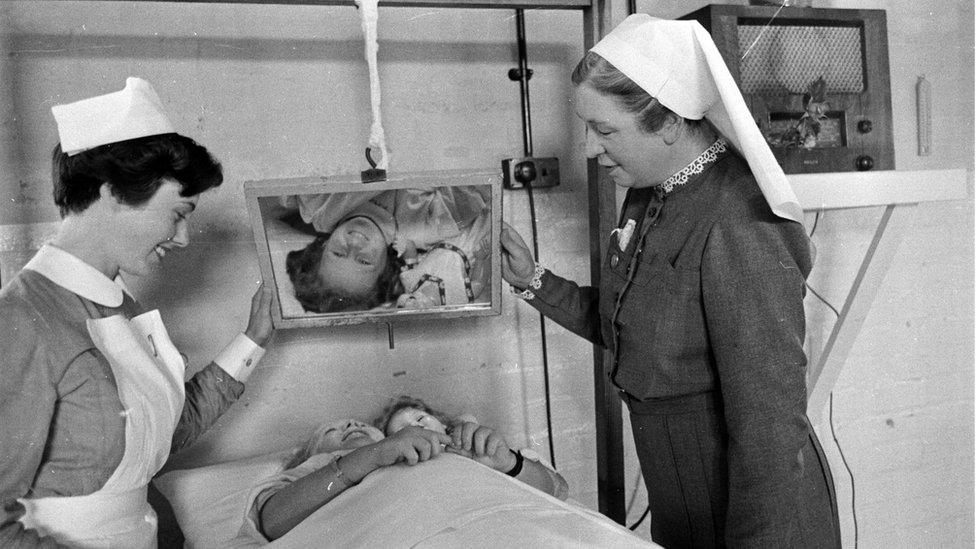
Two nurses adjust the mirror above the bed of an immobile young patient at a hospital in Inverness
As the National Health Service turns 70, BBC Scotland highlights some of the key milestones in its history - from prescription charges and keyhole surgery to pioneering scans and the smoking ban.
1913: The Highlands and Islands Medical Service is set up with a Treasury grant of £42,000. It was designed to address a shortfall in healthcare for remote communities. The service is considered a forerunner of the UK-wide NHS in that it was a state-funded and centrally-controlled.
1930: Scotland's first blood transfusion service is established. The inaugural panel of donors was brought together by Edinburgh dentist Jack Copland.
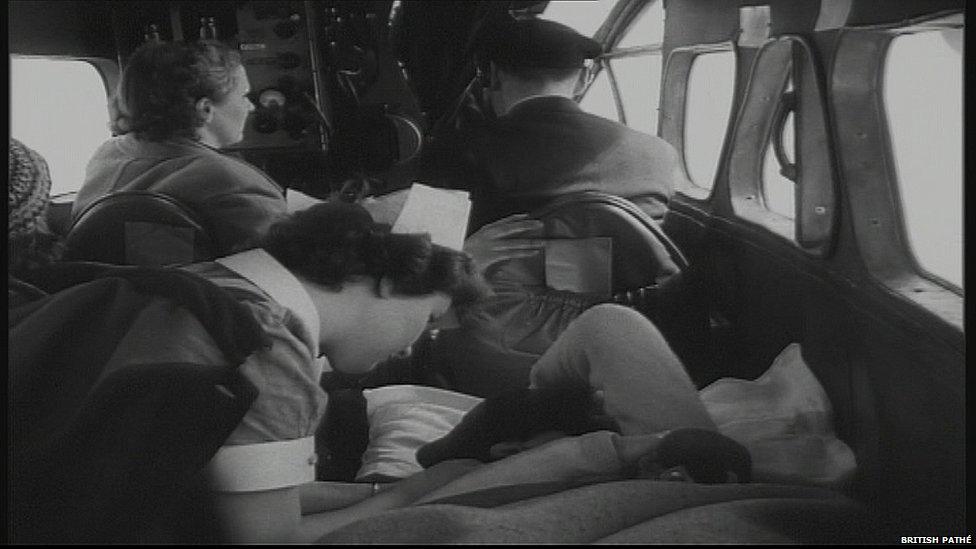
By 1948 Scotland's pioneering air ambulance service was carrying 275 passengers a year from remote locations
1933: Fisherman John McDermid becomes Scotland's first air ambulance patient. He was in urgent need of an abdominal operation but too ill for the sea and road journey. Mr McDermid arrived at the Western Infirmary in Glasgow just over an hour after the aircraft left Islay. A dedicated air ambulance service was launched two years later.
1939: The Emergency Hospital Service is launched. Seven new hospitals were built at Raigmore (Inverness), Stracathro (near Brechin), Bridge of Earn (Perthshire), Killearn (Stirling), Law (South Lanarkshire), Ballochmyle (East Ayrshire) and Peel (Selkirkshire). They were deliberately located away from towns and cities which might be bombed.
1948: The National Health Service (NHS) starts operating on 5 July.
1952: Prescription charges are introduced in January at a cost of 1 shilling (5p). Dental treatment costs £1 and, as a result, annual demand for dentures drops from 284,000 to 150,000.
1958: Prof Ian Donald and his colleagues in Glasgow produce the first practical ultrasound scanners, a groundbreaking development that continues to save lives to this day.
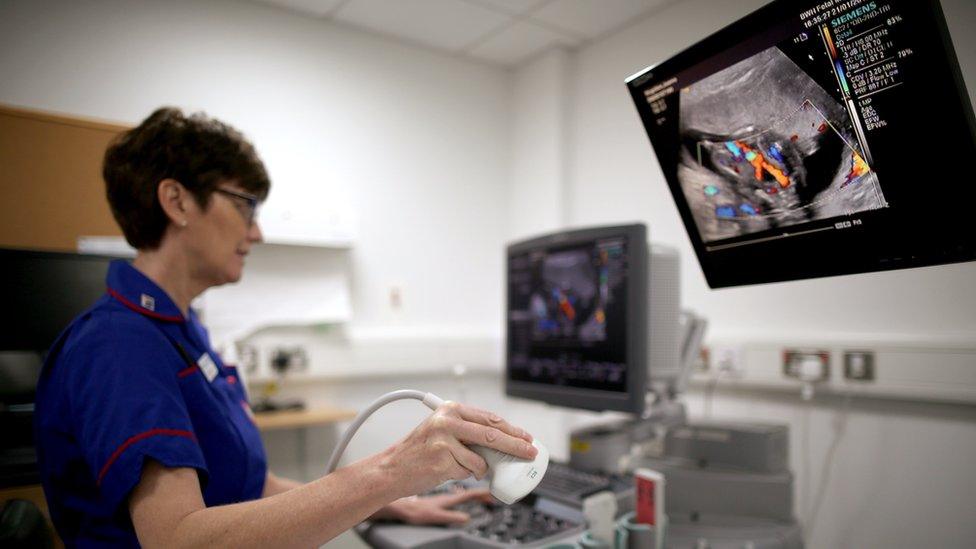
The first ultrasound scanners were developed in Glasgow
1960: A team led by Prof Michael Woodruff perform the UK's first successful kidney transplant at Edinburgh Royal Infirmary. The procedure, on 30 October, involved giving a 49-year-old man a kidney from his twin brother.
1961: Thalidomide, an anti-morning sickness drug, is found to cause children to be born with severe limb deformities. Edinburgh GP Ekke Kuenssberg and two colleagues are among the first to realise the danger. The city's Princess Margaret Rose Hospital became a leading world centre in helping young survivors and provided artificially-powered limbs they could control themselves.
1964: The NHS experiences its first major public health scare - a typhoid outbreak in Aberdeen. The source was identified as a single large can of Argentinean corned beef. Over a four-month period more than 500 people were hospitalised. The Scottish Communicable Diseases Unit was set up after the outbreak and it laid the foundations for the establishment of the Food Standards Agency.
1968: The world's first custom-built transplantation centre opens at the Western General in Edinburgh.
1972: The NHS Scotland Act is the first significant reorganisation of the health service north of the border since 1948. It establishes 15 health boards and other bodies in a bid to create a more efficient and integrated service.
1974: The Glasgow Coma Scale is developed. It seeks to reduce the number of avoidable deaths in head injury patients due to failure to spot complications early enough. It is now used around the world to grade a patient's level of consciousness in order to chart the progress of their recovery.
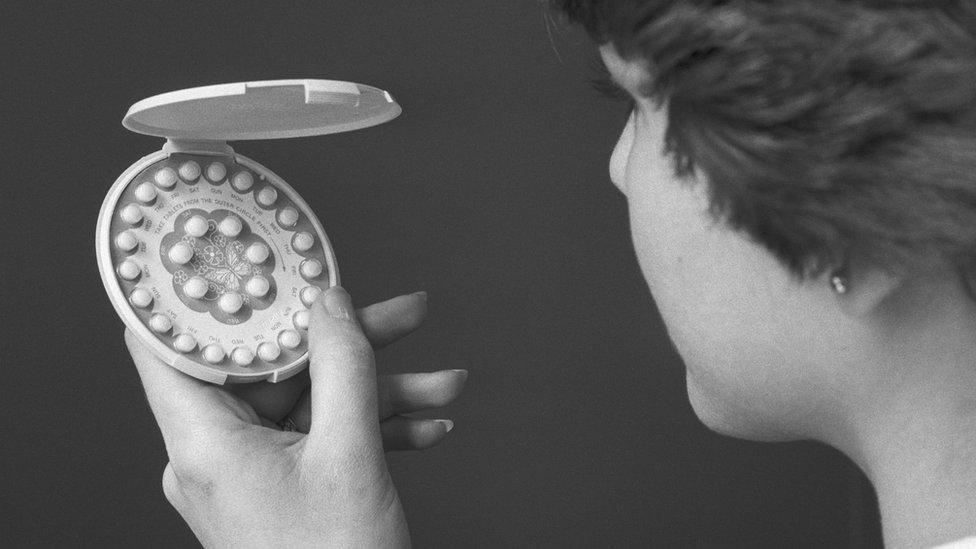
The UK's network of family planning clinics became part of the NHS in 1974
1974: Family Planning is rolled out with the formal provision of free contraceptive advice to all, irrespective of age or marital status.
1974: The Scottish Ambulance Service is launched. Before formally becoming part of the NHS it was provided by two voluntary organisations, the St Andrew's Ambulance Association and the British Red Cross. It now handles more than 500,000 calls a year.
1975: Endorphins - the natural opiates produced by the brain which kill pain - are discovered by a group of scientists led by John Hughes and Hans Kosterlitz of Aberdeen University.
1975: Paramedics are introduced to NHS Scotland.
1980: The world's first clinical service for Magnetic Resonance Imaging (MRI) is launched by Dr Francis Smith at Aberdeen Royal Infirmary. Unlike X-rays it has no risk of radiation. An elderly Fraserburgh man becomes the first patient in the world to have a whole body scan, which picked up tumours in his liver.
1982: The first case of AIDS is identified in Scotland. Infection rates in drug users are later found to be among the highest in Europe.
1988: The inaugural UK breast cancer screening programme is introduced following a report by Sir Patrick Forrest, professor of surgery at Edinburgh University.
1988: Sir James Black is awarded the Nobel Prize for Medicine. The Fife-born physician and pharmacologist made two major drug discoveries. Beta blockers for heart disease and histamine for stomach ulcers have saved countless lives around the world.
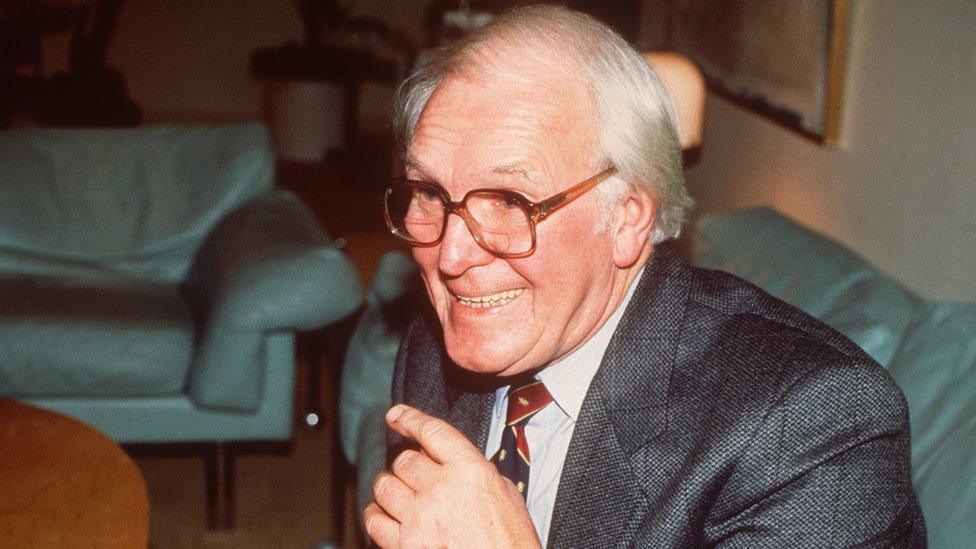
Nobel Prize winner Sir James Black
1989: The internal market - which brings in the idea of competition - is launched. It is the most fundamental change to the NHS since its inception. As a result patients are seen as consumers with separate purchasers and providers of services. Advocates claimed it would make the service more efficient but opponents said it simply added another layer of bureaucracy.
1989: Keyhole surgery is used for the first time in the UK to remove a patient's gall bladder. The historic procedure is carried out by Sir Alfred Cuschieri at Ninewells Hospital in Dundee.
1992: The Private Finance Initiative is introduced. This brings in private firms to build and then maintain non-clinical services in new hospitals. Scotland's first Scottish PFI hospitals are at Hairmyres and Law in Lanarkshire and the new Edinburgh Royal Infirmary.
1993: Community care is launched with the aim of supporting people at home rather than institutions. It leads to the closure of large, long-stay hospitals for people with mental health problems or learning disabilities.
1997: The Scottish Reference Laboratory is set up to help combat the rise in the bacterial infection, MRSA.
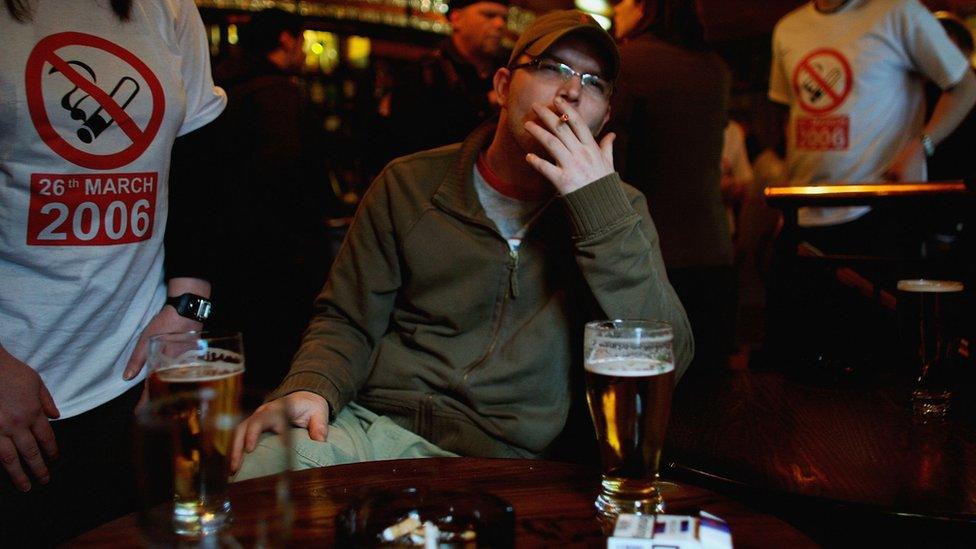
The smoking ban was introduced in March 2006
2002: Free personal care for the elderly is introduced by the Scottish Parliament, three years after it was rejected south of the border. It is initially set at £145 a week for people living in their own homes and £210 a week for those living in nursing homes.
2004: Paramedics start giving life-saving clot-busting drugs to heart attack patients. This highlights the huge change in their role over the years from basic stretcher bearers with first aid training to highly-trained clinicians.
2006: Scotland introduces a smoking ban in bars, clubs, restaurants and all public enclosed places. The country's chief medical officer Mac Armstrong hails the move as "far and away the most important improvement in our health in a generation".
2011: Prescription charges in Scotland come to an end on 1 April.
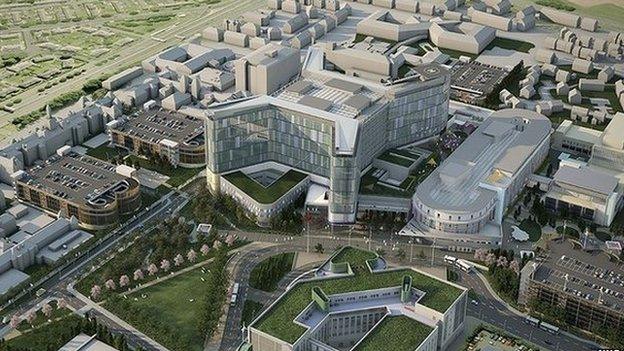
The campus has two hospitals - one for adults and a dedicated children's facility
2015: The new £842m Queen Elizabeth University Hospital is officially opened. Built on the site of the old Southern General in Glasgow it is one of the largest acute hospitals in the UK.
2015: The Golden Jubilee National Hospital in Clydebank, West Dunbartonshire, becomes the first in Scotland to perform keyhole lung surgery using 3D technology.
2018: The Scottish government sets the minimum price per unit of alcohol at 50p. Health secretary Shona Robison said: "With alcohol on sale today in some places at just 16 pence per unit, we have to tackle the scourge of cheap, high-strength drink that causes so much damage to so many families. This move will save thousands of lives."
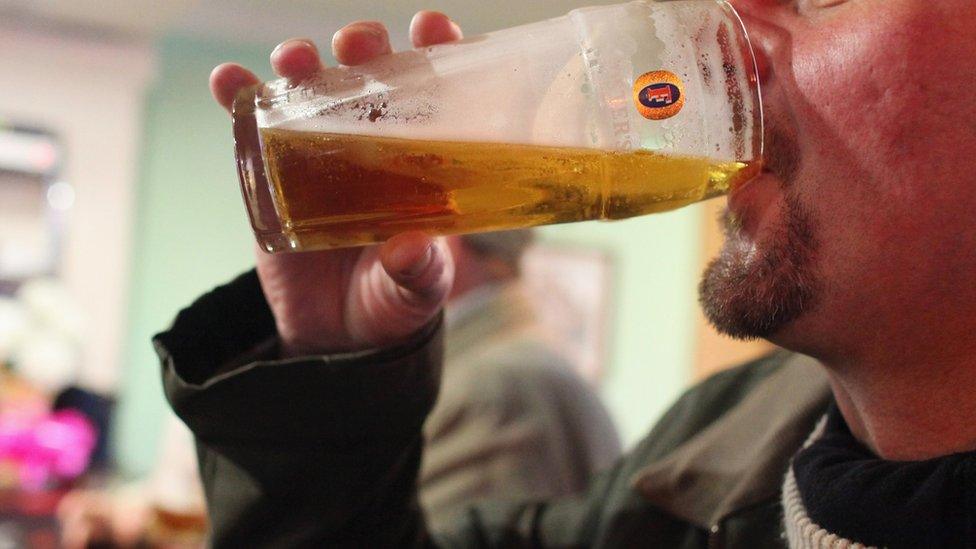
On average, each adult in Scotland drinks 19.6 units a week
NHS FACTS
:: £42m - Total cost of the NHS in Scotland in its first full financial year - around 2s 8d (13p) a week per head of population.
:: 500,000 - Number of free glasses and dentures claimed by Scots in the first year of the NHS.
:: £13.1bn - Scotland's health budget in 2018/19
:: 140,000 - number of staff employed by NHS Scotland